March 22 stands as one of history’s most eventful days, witnessing the rise and fall of empires, groundbreaking discoveries, and moments that shaped our modern world across centuries of human achievement.
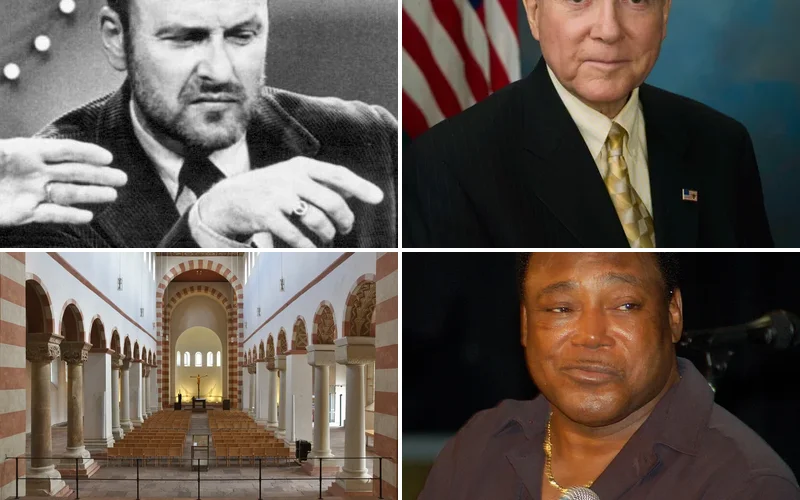
Politics and Government Events on March 22
1916 – Yuan Shikai Abdicates as Emperor of China
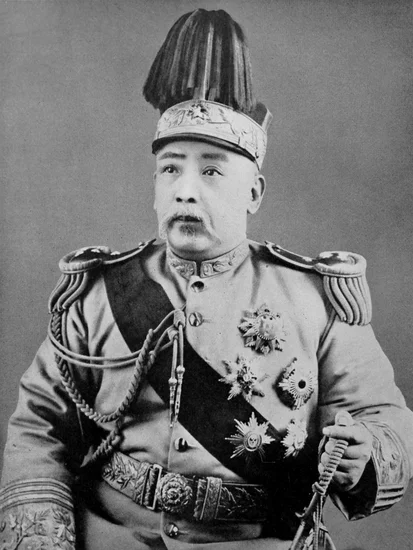
Yuan Shikai formally abandoned his imperial ambitions and restored the Chinese Republic after mounting opposition. His brief reign as emperor had sparked widespread rebellion and international condemnation.
The abdication marked the end of China’s last imperial experiment and Yuan’s return to the presidency. This political reversal would have lasting consequences for China’s republican development and regional stability.
1945 – Arab League Founded in Cairo
Representatives from six Arab nations signed the founding charter of the Arab League in Cairo, Egypt. The organization aimed to coordinate political and economic cooperation among Arab states.
This landmark agreement established the framework for Arab unity and collective action. The League would become a significant force in Middle Eastern politics and Pan-Arab nationalism.
1946 – Transjordan Gains Full Independence
The United Kingdom formally granted complete independence to Transjordan, ending decades of British mandate rule. King Abdullah I assumed full sovereignty over the newly independent nation.
This transition marked the emergence of modern Jordan as a sovereign state. The independence agreement reshaped the political landscape of the post-war Middle East.
1972 – Equal Rights Amendment Sent to States
The United States Congress approved the Equal Rights Amendment and transmitted it to state legislatures for ratification. This constitutional amendment sought to guarantee equal legal rights regardless of sex.
The amendment represented a historic milestone in the women’s rights movement. Despite initial momentum, the ERA would face significant opposition during the ratification process.
1992 – Democratic Victory in Albania

The Democratic Party of Albania secured a decisive parliamentary majority, effectively ending communist rule in the country. This election marked Albania’s transition to democratic governance after decades of isolation.
The victory represented the culmination of popular protests and political reforms. Albania’s democratic transformation aligned the nation with broader European democratic movements.
2019 – Mueller Report Submitted
Special Counsel Robert Mueller delivered his final report on Russian interference in the 2016 presidential election to Attorney General William Barr. The investigation had dominated American politics for nearly two years.
The report’s completion marked a pivotal moment in American political history. Its findings would continue to influence political discourse and legal proceedings for years to come.
Military and Naval History on March 22
1942 – Second Battle of Sirte
The Royal Navy engaged Italy’s Regia Marina in a fierce Mediterranean naval battle during World War II. British forces successfully protected a vital convoy bound for Malta despite facing superior Italian firepower.
The confrontation demonstrated British naval determination in maintaining Mediterranean supply lines. This tactical victory helped sustain Malta’s defense during the crucial wartime period.
1943 – Khatyn Village Massacre
Nazi collaborators from Schutzmannschaft Battalion 118 destroyed the entire Belarusian village of Khatyn, burning all inhabitants alive. This atrocity represented one of the most horrific examples of Nazi brutality in occupied Belarus.
The massacre claimed the lives of 149 villagers, including 75 children. Khatyn became a symbol of Belarusian suffering and resistance during the Great Patriotic War.
1945 – Hildesheim Bombing

British Royal Air Force bombers devastated the German city of Hildesheim despite its minimal military significance. The raid occurred just weeks before Germany’s final surrender, raising questions about strategic necessity.
The bombing destroyed much of the medieval city center and killed numerous civilians. This controversial operation highlighted the moral complexities of strategic bombing in war’s final stages.
1939 – Germany Seizes Memel
Nazi Germany forcibly annexed the Memel Territory from Lithuania, continuing its aggressive expansion across Eastern Europe. This occupation violated international agreements and increased tensions before World War II.
The annexation demonstrated Hitler’s disregard for diplomatic solutions and territorial sovereignty. Memel’s seizure further destabilized the already fragile European balance of power.
Science and Discovery Milestones on March 22
1960 – First Laser Patent Awarded

Arthur Leonard Schawlow and Charles Hard Townes received the groundbreaking patent for laser technology. Their invention would revolutionize communications, manufacturing, medicine, and countless other fields.
The laser patent represented a quantum leap in optical science and engineering. This technology would become fundamental to modern life, from fiber optic communications to surgical procedures.
1997 – Comet Hale-Bopp Closest Approach

Comet Hale-Bopp reached its nearest point to Earth at 1.315 astronomical units, providing spectacular viewing opportunities worldwide. The comet became one of the most widely observed celestial objects in history.
Millions of people witnessed this cosmic visitor, sparking renewed interest in astronomy. Hale-Bopp’s brightness and long visibility period made it a cultural phenomenon transcending scientific circles.
1995 – Valeri Polyakov Returns from Record Space Mission
Russian cosmonaut Valeri Polyakov completed his historic 438-day stay aboard the Mir space station. This endurance record demonstrated human capability for extended space travel.
Polyakov’s mission provided crucial data about long-term space habitation effects on the human body. His achievement advanced scientific understanding necessary for future Mars missions and deep space exploration.
1993 – Intel Ships First Pentium Processors
Intel Corporation released the revolutionary Pentium microprocessor, featuring 60 MHz clock speeds and 64-bit data pathways. This breakthrough chip would power the personal computer revolution of the 1990s.
The Pentium processor delivered unprecedented computing performance for consumer applications. Its introduction marked a significant milestone in the evolution of personal computing technology.
Cultural and Arts Events on March 22
1963 – The Beatles Release Debut Album

The Beatles released their groundbreaking debut album “Please Please Me” in the United Kingdom. The album established the band as a major force in popular music and launched Beatlemania.
Recorded in just one day at Abbey Road Studios, the album showcased the band’s extraordinary talent. “Please Please Me” would remain at number one for 30 weeks and transform popular music forever.
1934 – First Masters Tournament
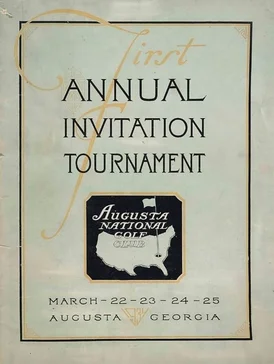
Augusta National Golf Club hosted the inaugural Masters Tournament in Georgia. This prestigious event would become one of golf’s four major championships and a springtime tradition.
The tournament attracted top professional golfers and established Augusta National’s reputation. The Masters would evolve into one of sport’s most celebrated and exclusive competitions.
1997 – Tara Lipinski Youngest World Champion

Fourteen-year-old Tara Lipinski became the youngest women’s World Figure Skating Champion in history. Her victory demonstrated exceptional athletic achievement at an remarkably young age.
Lipinski’s triumph marked a new era in competitive figure skating. Her success would inspire a generation of young athletes and elevate American figure skating prominence.
Religious and Social Events on March 22
1920 – Shushi Massacre
Azerbaijani and Turkish forces, supported by Kurdish units, launched a devastating attack on Armenian residents of Shushi in Nagorno-Karabakh. The assault resulted in widespread casualties and displacement.
The massacre represented part of broader ethnic violence in the Caucasus region. These events contributed to lasting tensions and conflicts that would persist throughout the twentieth century.
1972 – Contraceptive Rights Expanded
The United States Supreme Court ruled in Eisenstadt v. Baird that unmarried individuals possessed the right to obtain contraceptives. This decision extended reproductive rights beyond married couples.
The ruling challenged traditional moral and legal restrictions on contraception access. This landmark decision advanced personal privacy rights and reproductive freedom in American jurisprudence.
1988 – Civil Rights Act Override
Congress successfully overrode President Ronald Reagan’s veto of the Civil Rights Restoration Act of 1987. This legislation strengthened federal anti-discrimination enforcement across institutions receiving federal funding.
The override demonstrated bipartisan commitment to civil rights protection. The act expanded the scope of federal civil rights laws and reinforced equal opportunity principles.
Business and Economic Events on March 22
1933 – Cullen-Harrison Act Signed
President Franklin D. Roosevelt signed legislation legalizing the manufacture and sale of 3.2% alcohol beer and light wines. This amendment to the Volstead Act marked the beginning of Prohibition’s end.
The act provided immediate economic relief to breweries and generated desperately needed tax revenue. This first step toward full alcohol legalization signaled changing American attitudes toward Prohibition.
1978 – Browns Ferry Nuclear Incident

A serious fire at Alabama’s Browns Ferry Nuclear Power Plant caused dangerous reductions in reactor cooling water levels. The incident raised significant questions about nuclear safety protocols.
The fire started when workers used candles to check for air leaks, igniting cable insulation. This near-disaster prompted comprehensive reviews of nuclear plant safety procedures and emergency protocols.
2013 – Burmese Refugee Camp Fire
A devastating fire destroyed a refugee camp near Ban Mae, Thailand, killing at least 37 people and injuring 200 others. The tragedy highlighted the vulnerable conditions faced by displaced populations.
The fire spread rapidly through the temporary shelters housing Burmese refugees. This disaster drew international attention to refugee camp safety standards and humanitarian conditions.
Transportation and Infrastructure on March 22
1920 – Space Shuttle Columbia Third Mission
NASA launched Space Shuttle Columbia from Kennedy Space Center on its third mission, STS-3. This flight continued the shuttle program’s operational testing and capability development.
Columbia’s mission demonstrated the spacecraft’s reliability and versatility for various space operations. The successful flight advanced America’s space transportation capabilities and scientific research programs.
1996 – Space Shuttle Atlantis Launched

NASA’s Space Shuttle Atlantis began its 16th mission, STS-76, marking another milestone in the shuttle program. The mission supported ongoing space station operations and scientific research.
Atlantis carried crew and supplies for extended space operations. This mission demonstrated the shuttle’s crucial role in maintaining America’s space infrastructure and international partnerships.
1992 – USAir Flight 405 Crash

USAir Flight 405 crashed shortly after takeoff from New York’s LaGuardia Airport, leading to comprehensive studies of ice effects on aircraft performance. The accident prompted significant aviation safety improvements.
The crash investigation revealed critical information about aircraft icing conditions. These findings resulted in enhanced pilot training and improved aircraft de-icing procedures industry-wide.
1955 – Navy Aircraft Crashes in Hawaii
A United States Navy Douglas R6D-1 Liftmaster crashed into Hawaii’s Wai’anae Range, killing all 66 people aboard. The accident represented one of the deadliest military aviation disasters of the era.
The crash highlighted the dangers of military aviation operations in challenging terrain. This tragedy prompted reviews of flight safety protocols and aircraft maintenance procedures.
Sports and Recreation on March 22
1906 – First England vs France Rugby Match
England faced France in their inaugural rugby union international match at Parc des Princes in Paris. England dominated the historic encounter, winning decisively in this sporting milestone.
The match established rugby union as an international sport and began the storied rivalry between these nations. This game helped spread rugby’s popularity across Europe and beyond.
Notable Births on March 22
1931 – William Shatner Born

Canadian actor William Shatner was born in Montreal, Quebec, destined to become one of science fiction’s most iconic figures. His early theatrical training prepared him for a legendary entertainment career.
Shatner would achieve immortality as Captain James T. Kirk in the original Star Trek series. His commanding presence and dramatic style made him a cultural icon transcending science fiction.
1930 – Stephen Sondheim Born

American composer and lyricist Stephen Sondheim entered the world in New York City. His childhood exposure to musical theater shaped his revolutionary approach to songwriting and composition.
Sondheim would revolutionize musical theater with complex, sophisticated works like “Company” and “Sweeney Todd.” His innovative lyrics and intricate musical structures earned him numerous awards and lasting influence.
1948 – Andrew Lloyd Webber Born

English composer Andrew Lloyd Webber was born in Kensington, London, into a musical family. His early musical education and theatrical interests pointed toward his future success.
Lloyd Webber would create some of musical theater’s most beloved works, including “The Phantom of the Opera” and “Cats.” His melodic genius and theatrical vision made him one of the most successful composers in history.
1943 – George Benson Born

American jazz guitarist and singer George Benson was born in Pittsburgh, Pennsylvania. His early musical talent and diverse influences shaped his unique style blending jazz, pop, and R&B.
Benson would become one of jazz’s most commercially successful artists while maintaining critical acclaim. His guitar virtuosity and smooth vocals earned him multiple Grammy Awards and widespread popularity.
1976 – Reese Witherspoon Born

American actress Reese Witherspoon was born in New Orleans, Louisiana, beginning her journey toward Hollywood stardom. Her Southern charm and natural acting ability would define her career.
Witherspoon would achieve both commercial success and critical acclaim in films like “Legally Blonde” and “Walk the Line.” Her production company would also champion female-driven stories in Hollywood.
1932 – Orrin Hatch Born
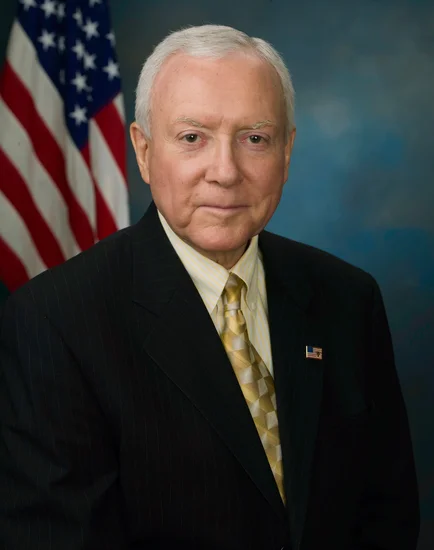
American lawyer and politician Orrin Hatch was born in Homestead, Pennsylvania. His legal background and conservative principles would guide his long political career.
Hatch would serve as Utah’s senator for over four decades, becoming one of the longest-serving senators in American history. His influence on judicial appointments and conservative legislation was substantial.
1920 – Werner Klemperer Born
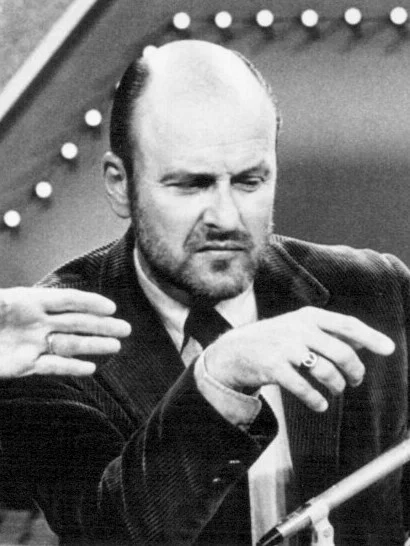
German-American actor Werner Klemperer was born in Cologne, Germany, to a musical family. His family’s emigration to America during the Nazi era shaped his later career choices.
Klemperer would find fame playing Colonel Klink in the television series “Hogan’s Heroes.” His portrayal of the bumbling Nazi officer earned him Emmy Awards and television immortality.
1929 – Yayoi Kusama Born

Japanese contemporary artist Yayoi Kusama was born in Matsumoto, Nagano Prefecture. Her childhood experiences with hallucinations would profoundly influence her artistic vision and creativity.
Kusama would become one of the world’s most recognizable contemporary artists, known for her polka dot installations and infinity rooms. Her mental health struggles and artistic expression created powerful, transformative artworks.
Notable Deaths on March 22
1978 – Karl Wallenda Dies
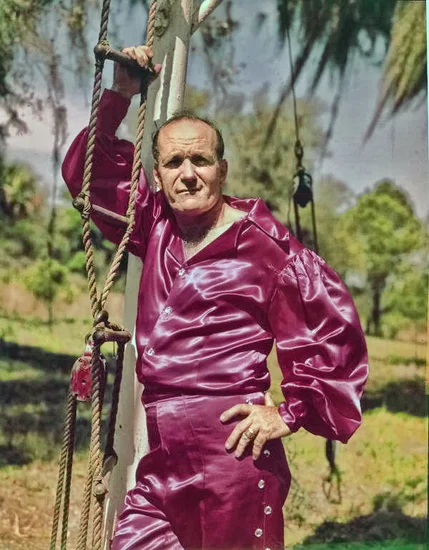
German-American acrobat Karl Wallenda, founder of The Flying Wallendas, died after falling from a tightrope in San Juan, Puerto Rico. His death marked the end of an era in circus performance.
Wallenda had performed death-defying acts for decades, establishing his family as circus legends. His tragic death while attempting a promotional stunt highlighted the constant dangers faced by professional acrobats.
2001 – William Hanna Dies
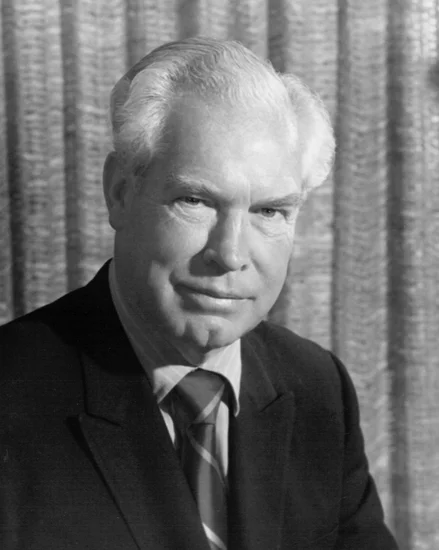
American animator William Hanna, co-founder of Hanna-Barbera Productions, died in Hollywood, California. His partnership with Joseph Barbera created some of television’s most beloved animated characters.
Hanna co-created iconic characters including Tom and Jerry, The Flintstones, and Yogi Bear. His innovative animation techniques and storytelling skills revolutionized television animation and children’s entertainment.
2004 – Ahmed Yassin Dies

Ahmed Yassin, co-founder and spiritual leader of Hamas, was killed in an Israeli airstrike in the Gaza Strip. His death marked a significant moment in the Israeli-Palestinian conflict.
Yassin had been a prominent Palestinian leader and advocate for resistance against Israeli occupation. His assassination intensified regional tensions and sparked international diplomatic discussions.
2005 – Kenzō Tange Dies
Japanese architect Kenzō Tange died in Tokyo, leaving behind a revolutionary architectural legacy. His modernist designs had transformed Japanese architecture and influenced worldwide urban planning.
Tange designed iconic structures including the Yoyogi National Gymnasium and Hiroshima Peace Memorial Museum. His work successfully merged traditional Japanese aesthetics with modern architectural principles.
2001 – Sabiha Gökçen Dies

Turkish aviator Sabiha Gökçen, the world’s first female combat pilot, died in Ankara, Turkey. Her pioneering career had broken gender barriers in military aviation.
Gökçen flew combat missions during the 1930s and inspired generations of female pilots. Her achievements helped establish women’s roles in military service and aviation careers.
2019 – Scott Walker Dies

British-American singer-songwriter Scott Walker died in London, England, after a influential career spanning six decades. His artistic evolution from pop star to avant-garde composer had been remarkable.
Walker began with The Walker Brothers before pursuing increasingly experimental solo work. His deep voice and innovative compositions influenced countless musicians and pushed popular music boundaries.
Holidays and Observances on March 22
World Water Day

The United Nations designated March 22 as World Water Day to raise awareness about global water issues and promote sustainable water management. This international observance highlights the critical importance of freshwater resources.
Communities worldwide organize events to address water scarcity, pollution, and access challenges. The day emphasizes the fundamental human right to clean water and sanitation.
Emancipation Day in Puerto Rico
Puerto Rico commemorates the abolition of slavery with Emancipation Day, celebrating the end of this institution in 1873. This observance honors the struggle for freedom and human dignity.
The day recognizes the contributions of enslaved people and their descendants to Puerto Rican society. Educational programs and cultural events mark this important milestone in the island’s history.
Bihar Day in India
The Indian state of Bihar celebrates its formation and cultural heritage on this day. Regional festivals and cultural programs showcase Bihar’s rich history and traditions.
Bihar Day promotes awareness of the state’s contributions to Indian civilization and culture. Government ceremonies and public events highlight regional achievements and development initiatives.
